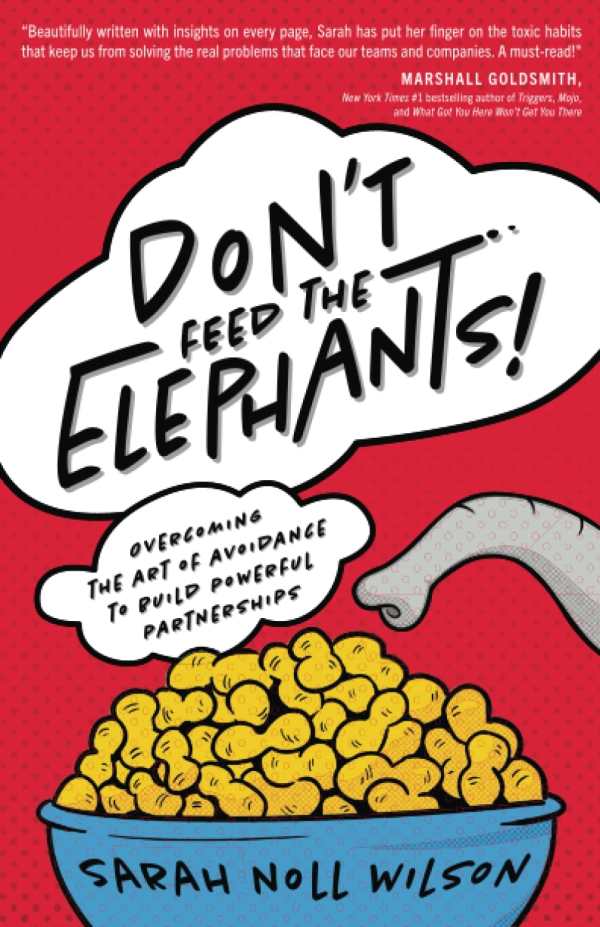Don't Feed the Elephants!
Overcoming the Art of Avoidance to Build Powerful Partnerships
The lighthearted, insightful business guide Don’t Feed the Elephants! facilitates interpersonal communications in order to build healthy workplaces.
Sarah Noll Wilson’s business book Don’t Feed the Elephants! is about addressing avoidance, blame, and other interpersonal impediments to success.
Both advising leaders about running successful workplaces and teaching general audiences how to communicate with their colleagues, this book has the avoidance of conflict and difficult subjects at its core. It’s a guide to dynamic and effective connection, with practical advice for escaping common traps that sour partnerships, sink productivity, and stifle performance. It is meticulous in suggesting ways to move beyond points of disagreement, with tools including listening, understanding, and compromising.
Though geared toward the corporate world, the book imparts principles that could be applied to any relationship. It discusses the importance of not letting thorny topics fester and sets forth concrete steps for tackling uncomfortable issues that people often prefer to sidestep but which can undermine interpersonal relations. It makes the case that “clarity kills doubt but takes courage.” The book examines in detail how avoidance inhibits relationships and impairs success, quoting professors and academic studies on subjects like leadership. Its notions are based in science, too: it notes that human nature may push people to shirk conflicts but that strong relationships often depend on a healthy give-and-take that goes beyond one’s comfort zone.
The book plays on its central conceit in a way that is fun and accessible. It identifies different types of elephants that hinder earnest conversations—Avoidephants, Blamephants, and Deflectephants among them. And its humorous illustrations are reminiscent of New Yorker cartoons, helping to sustain its lighthearted tone, even in the midst of substantive lessons. Regular bullet points, case studies, subheadings, and quotes keep its pace breezy.
The book’s topical chapters are dedicated to subjects like self-awareness, curiosity, intention, and how stress impacts the brain. In form and organization, it flows well. For instance: several chapters are devoted to covering curiosity as a healthy psychological framework that facilitates meaningful conversations and stronger partnerships. And the “Ready, Set, Act!” chapter supplies the tools for putting these theories into action, while the text itself builds to a conclusion that recapitulates its main points, bolstered by testimonials from those who have themselves applied Wilson’s advice.
The lighthearted, insightful business guide Don’t Feed the Elephants! facilitates interpersonal communication, clearing a path to a more open and transparent workplace.
Reviewed by
Joseph S. Pete
Disclosure: This article is not an endorsement, but a review. The publisher of this book provided free copies of the book and paid a small fee to have their book reviewed by a professional reviewer. Foreword Reviews and Clarion Reviews make no guarantee that the publisher will receive a positive review. Foreword Magazine, Inc. is disclosing this in accordance with the Federal Trade Commission’s 16 CFR, Part 255.

